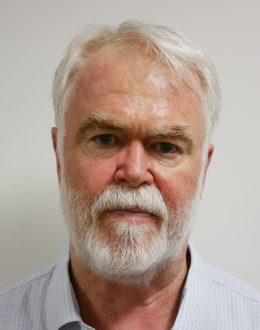
梅约翰教授
梅约翰教授
澳大利亚国立大学名誉教授
乐卓博大学名誉教授
澳大利亚人文科学院院士
梅约翰(John Makeham)是澳大利亚国立大学名誉教授、乐卓博大学名誉教授以及澳大利亚人文科学院院士; 也曾在香港中文大学、阿德莱德大学、国立台湾大学以及惠灵顿维多利亚大学担任过学术职务和客座教授。研究专长为中国哲学思想史; 对先秦以来的儒家思想尤其感兴趣,也颇关注佛教思想在前现代及现代儒家哲学中作为知识资源的作用。他是博睿学术出版社《现代中国哲学》着作系列的系列编辑,也是博睿学术出版社新出的《东亚佛教哲学》着作系列的系列编辑之一。他曾获得约瑟夫·列文森图书奖(2005年)以及中华图书特别贡献奖(2015年)的奖项; 也曾任过大洋洲亚洲哲学与比较哲学协会会长(1994-1996年)以及澳大利亚中国研究协会会长(2017-2019年)。
熊十力与朱熹论「道德之恶」的根源

摘要:
熊十力(1885–1968)是20世纪最重要的中国哲学家之一,获公认为现代「新儒家」哲学的奠基者之一。鉴于朱熹(1130–1200)所创发具有高度系统性的理学思想以及他思想遗产的深远影响,朱熹则或堪称千年以来最重要的中国哲学家。
本讲座将比较熊十力和朱熹二人对「道德之恶」的根源所采取的理论进路。我会集中讨论熊十力的《明心篇》(1959); 在本书中熊十力以「性」与「心」解释「道德之恶」的根源。然后我会论证,熊、朱二人的进路,其实是同构的;这种同构性颇有意义,因为这就意味着,熊十力是有意识地借鉴于朱熹思想以及朱熹所借鉴的佛教概念模式,特别是6世纪佛教文本《大乘起信论》裏的概念模式。本讲最后一部分将论证,熊十力并不甘于单单借鉴朱熹的观点,他也尝试解决朱熹的理论缺失。
英语主讲
欢迎参加
Xiong Shili’s Ti-Yong Metaphysics and the Treatise on Awakening Mahāyāna Faith’s “One Mind, Two Gateways” Paradigm

摘要:
Xiong Shili 熊十力 (1885-1968) was very much heir to a body of philosophical traditions, in which the ti-yong polarity featured centrally in repeated attempts, since at least the fifth century, to answer the question, “How can the unconditioned (the absolute, suchness, principle) be realized if our cognitive awareness is circumscribed by the conditioned nature of human existence?” The focus of this seminar presentation is on how Xiong drew on Huayan, and later on Tiantai, philosophical resources to articulate changing formulations and refinements of his signature metaphysical doctrine of the “non-duality of ti and yong” (体用不二). The period covered spans the 1930s to the early 1960s. These resources were grounded in accounts of the relationship between li 理 and shi 事, which, in turn, were philosophical responses to and developments of the account of the relationship between the unconditioned and the conditioned in the Treatise on Awakening Mahāyāna Faith (Dasheng qixin lun 大乘起信论), as encapsulated in its “one mind, two gateways” (一心二门) model.
The first part of this presentation will establish the connection between Xiong’s pre-1950 account of the non-duality of ti and yong thesis and the Huayan doctrine of the non-obstruction of li and phenomena (理事无碍). In the 1950s, Xiong’s ontological views changed substantially. The second part will seek to show how Xiong’s late 1950s-early 1960s account of the non-duality of ti and yong thesis is theoretically grounded in Tiantai accounts of ti-yong.
英语主讲
欢迎参加




